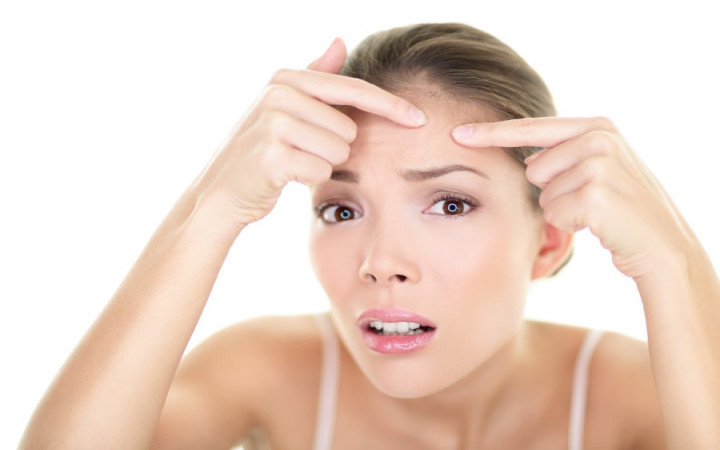All week, you've been so excited! You can barely stand the anticipation. Will Friday ever get here? After the big game, it'll be time for your very first school dance. All your friends are going and you're hoping a certain someone will be there, too.
As you wake up Friday morning, your feet hit the floor. You're ready to go. The big day is finally here. You rush to the bathroom to get ready for school. As you flip on the light and glance in the mirror, you notice a spot of red at the end of your nose. Could it be? No! But, yes, sadly it is! A pimple has shown up at the worst possible time.
Has this ever happened to you? If not, don't worry. It will. Nearly everyone in their life will have pimples or other facial blemishes from time to time. And often they can seem to pop up at the worst possible time!
Especially during puberty, oil glands in the skin can become overactive, producing too much of an oil called sebum. Sebum, dead skin cells, and bacteria can clog the pores in your skin, causing them to become inflamed. When this happens, you may see these areas as different types of blemishes, including whiteheads, blackheads, papules, pustules, nodules, or cysts. Collectively, these types of blemishes are known as acne.
Scientists aren't sure why some people tend to get acne more than others. Hormones that increase during puberty definitely play a role, which explains why acne affects many teens. However, genetics may also play a role. If your parents had acne, there's a good chance you will, too.
There's no need to stress out about acne. Nearly everyone will struggle with it from time to time. Skin experts will tell you there's no guaranteed way to avoid acne. There are, however, a few things you can do to minimize the number and severity of acne episodes you may experience.
For example, take good care of your skin! Washing, especially after exercise, is important to remove excess oils and dead skin cells that can clog pores. Just don't wash too often or too aggressively, as overwashing and scrubbing can irritate the skin. You should also use only lotions and makeup that are nonacnegenic, which means they won't clog pores.
If you do encounter acne, there are many treatments available. Various over-the-counter medications, usually containing either benzoyl peroxide or salicylic acid, are available. If you have a serious bout with acne, you may want to see a dermatologist, who is a doctor who specializes in skin issues.
One word of caution that dermatologists will give you regarding your acne is this: avoid touching your face and don't pop pimples! Touching your face can spread oils and bacteria to other areas of your face, leading to more breakouts. Popping pimples can push infected material deeper into the skin, resulting in even more swelling and redness.
Severe acne can sometimes lead to scarring of the skin. If severe infections occur or scarring is a concern, you should consult a dermatologist immediately. Professional dermatologists can often provide special treatments not available over-the-counter that can cure infections and minimize or eliminate potential scarring.




